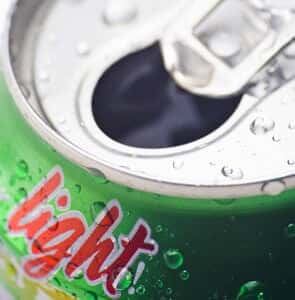
With so many Americans being told they are overweight or obese, lots of people are trying hard to cut calories. One popular way to do that is to substitute artificial sweeteners such as aspartame for sugar in foods and beverages.
Could Diet Soda Protect You from Weight Gain and High Blood Sugar?
In a new study, Canadian scientists used US data from the National Health and Nutrition Survey. Nearly 3,000 adults who participated in that survey reported whether or not they used artificial sweeteners and how much sugar they consumed. They also took a glucose tolerance test to determine their risk for diabetes. In this test, blood is drawn when the person is fasting. Then they are given a drink with 50 grams of glucose to consume, and blood is drawn once again after an hour to see how high blood sugar has gone in response.
Counterintuitive Consequences:
The results were not what you might expect. The people who commonly used artificial sweeteners consumed fewer calories but did worse on the glucose tolerance test, showing a higher chance of developing type 2 diabetes.
The researchers suggest that aspartame, also known as NutraSweet or Equal, may alter the microbiome in undesirable ways. There is evidence from rat studies that low-dose aspartame results in microbes synthesizing propionate, a compound that can be readily turned into glucose in the body (PLoS One, Oct. 14, 2014). Such research might make us skeptical that drinking diet soda will be the best way to avoid the development of type 2 diabetes.
Applied Physiology, Nutrition and Metabolism, online May 24, 2016
How to Prevent Diabetes and Reverse Prediabetes:
There are evidence-based approaches to help those with prediabetes prevent its progression into full-fledged type 2 diabetes. We discussed exercise, diet, stress control and botanical medicines that can help with a panel of experts in a recent one-hour interview: Show 1036, How to Prevent Diabetes by Changing Your Life. If you follow our experts’ recommendations, you won’t have to wonder will diet soda protect you from high blood sugar. You may also be interested in our Guide to Managing Diabetes.

